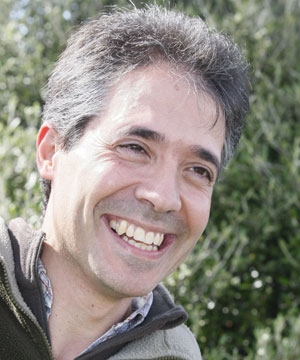 Dr Juan Blanco Having become the first person to artificially inseminate a kakapo, Dr Juan Blanco believes our native parrot has been well looked after by Kiwis humans that is.
Dr Juan Blanco Having become the first person to artificially inseminate a kakapo, Dr Juan Blanco believes our native parrot has been well looked after by Kiwis humans that is.
The Spanish vet has just spent 17 days on Whenua Hou/Codfish Island helping the Conservation Department with kakapo breeding.
Last month, Dr Blanco artificially inseminated a kakapo, making him the first person to successfully perform the procedure on a wild endemic, endangered bird.
Dr Blanco said the purpose was to ensure genetic diversity among kakapo on the island, where only two male birds were the dominant breeders.
It would also provide the foundation for a kakapo sperm bank, allowing DOC staff to actively promote breeding on the island when conditions suit, as they have this summer, he said.
"The female kakapo feed their chicks with a particular type of berry from the rimu tree and if it's in short supply, they won't breed," he said. "It depends a bit on climate, but it only happens every four to six years."
The mechanics of artificially inseminating a kakapo were a bit complex but Dr Blanco said it was a very short, simple procedure that could be performed in their field.
This is the fourth year in a row Dr Blanco has visited Codfish Island and he believes DOC, through its kakapo recovery programme, has made great strides towards ensuring the bird's survival.
"What I've done here is just a tool. The real work is being done by DOC on the island to provide a safe habitat for the kakapo."
His previous visits have involved training DOC staff and gathering information about kakapo breeding procedures.
A world-renowned expert on assisted reproductive techniques in endangered birds, Dr Blanco said the kakapo was one of the most unique birds he has ever encountered.
"It's very synchronised with its environment. I've never seen a bird cope as well with the environment around it."